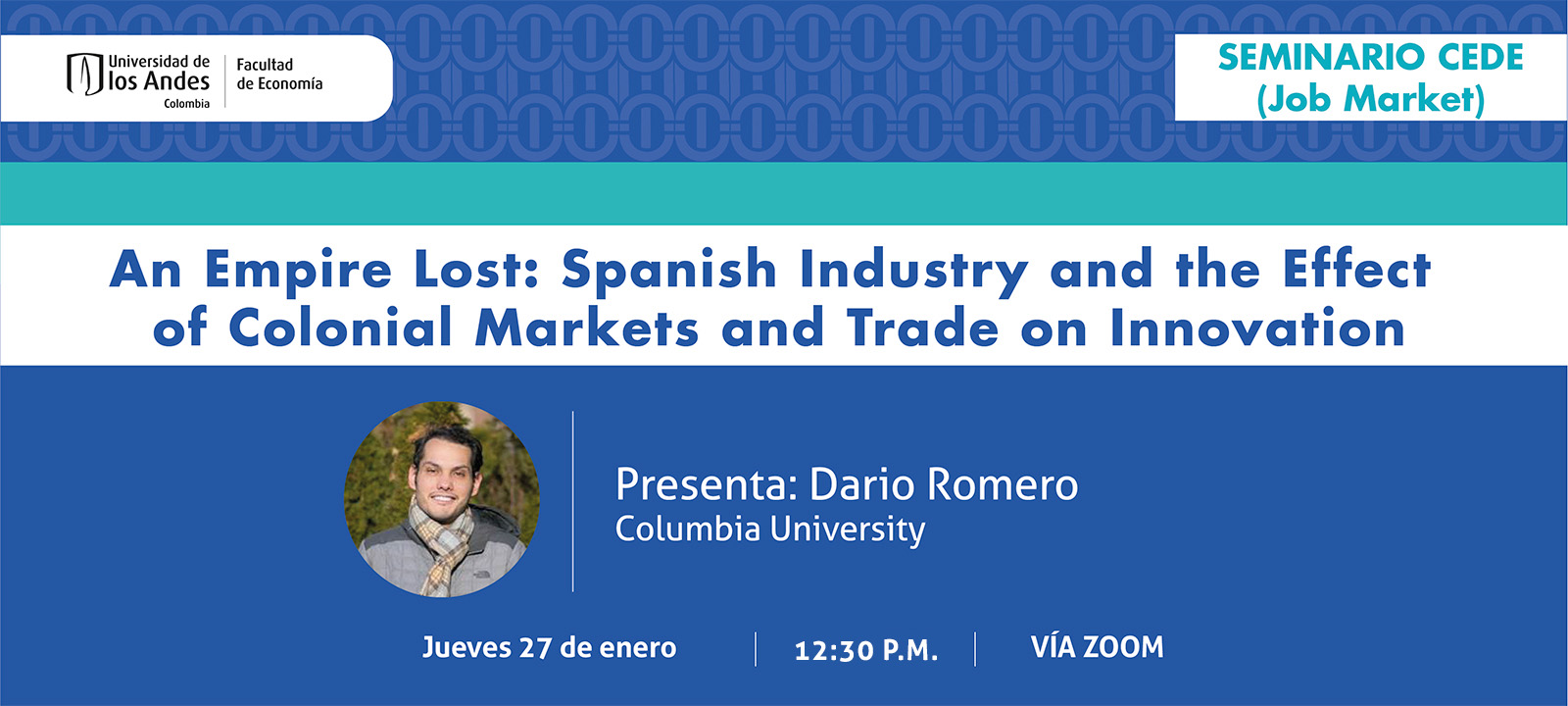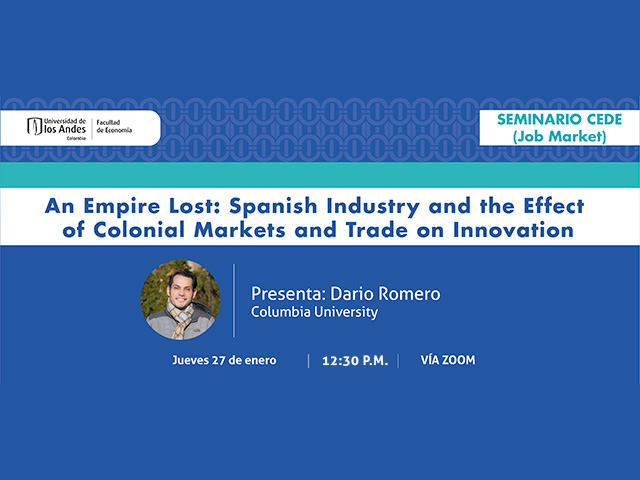Seminario CEDE - Dario Romero

This paper studies how changes in access to international markets affect the direction of technical change. I use two historical trade shocks that transformed markets for the Spanish textile industry at the end of the 19th century, along with newly digitized data on textile patents and production in Spain. First, after Spain effectively forced its colonies to buy manufactured cotton goods in 1891, I document an increase in cotton textile innovation relative to other fabrics. Second, after the Spanish-American war and the unexpected loss of these captive markets, I find that innovation in cotton textiles changed towards new weaving patents relative to other parts of the cotton textile production process such as threading. After 1898, cotton industrialists entered and competed in international markets where more sophisticated fabrics were in demand. Using novel archive data from a big cotton firm, I provide price and quantity-based evidence of the strength of each type of technical change. Finally, I show that these new incentives to innovation translated directly into adopting new mechanized tools in the sector. I find evidence of an expansion in industrial technology due to an increase in mechanized cotton looms used in Spain after 1900. Together, these results provide some of the first causal evidence on how international trade shapes the direction of the technical change. Although each shock meant access to new markets for Spanish cotton textiles, their effect on innovation varied because the composition of textile demand was different.

